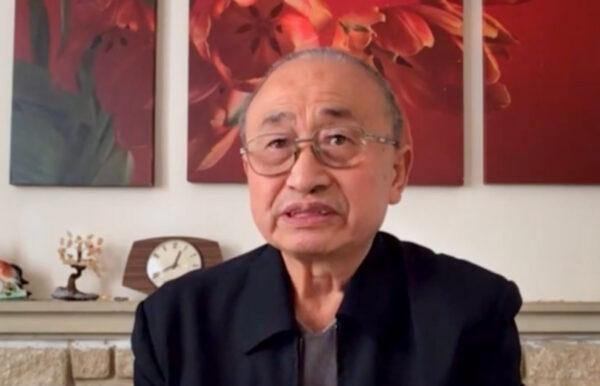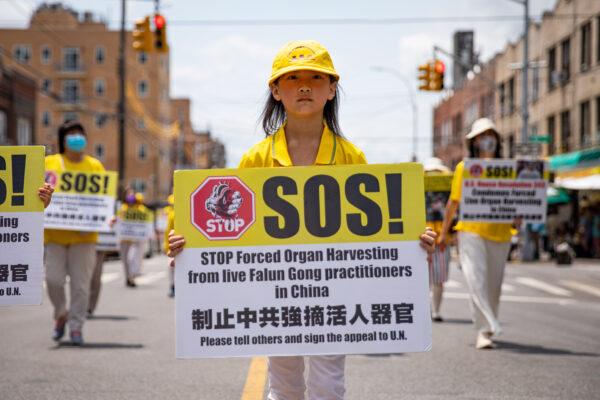It’s not uncommon to see someone breaking down in tears in hospitals. So when Guo Zhigong, who was being treated for aplastic anemia, tried to help a fellow patient who was crying, he didn’t expect to hear a story about China’s opaque organ transplant business.
The patient, in his 40s, was worried about a kidney transplant scheduled the next day in eastern China’s Qingdao city. The promised organ was from a prisoner due to be executed hours before the life-saving surgery. They had already undergone blood matches.
But what followed was another eye-opener: the family of the executed appeared to have no knowledge that a part of their loved one’s body had been sold by the police.
The patient’s wife was told to give cash gifts to the police, Gao recalled what the woman told him. The police, according to the woman’s recount, told the father of the executed prisoner that he didn’t have all the necessary documentation to recover the body. This was an excuse the police gave so that they could keep the body for their grisly business.
“Once they got the body, the organs were sold to hospitals,“ Guo, who now lives in the UK, told The Epoch Times. ”This is the source of the kidney.”
That incident occurred in the early 1990s, when there was no voluntary organ donation system in China. Most kidneys, livers, corneas, and other organs for transplantation were taken from executed prisoners, the regime admitted in 2005. Prior to that, the authorities denied that it stripped organs from executed inmates, a practice that has long been criticized by human rights groups given that prisoners lack the ability to provide free consent.
Organ Transplant Business
It was in the summer of 1991 when Guo met the organ recipient for the first time. The patient, a man who was suffering from uremia, was crying in a ward as he feared he might die the next day, when he was scheduled to receive a new kidney.The patient told Guo the kidney was from a death row prisoner that is due to be executed on the same day.
But in practice, the regulation was only a cover: There would be “consent” no matter what the actual desire of inmates or their families.
“The police authorities had already performed blood tests with the death row prisoner and results show they were [a kidney] match,” Guo recounted what the patient’s family said.
There was a group of police who were responsible for getting the body slated for organ extraction back, Guo said.
They would require family members of the executed to present multiple documents or proofs of identity and relationships, which Guo noted were not required by regulations. He suggested that was part of efforts to make sure the body of the executed could be classified as an abandoned corpse so police could take it away.
Patients due to receive an organ need to pay an additional amount of money to the police. “That was what the patient’s family member told me,” Guo said. “I also saw [the patient’s wife] wrapping cash in paper. She said that was for the police. The doctor asked her to give money directly to the public security officers.”
“I was very, very sad and very angry,” Guo described the feelings as he learned hospitals were “colluding with the law enforcement department to illegally obtain and sell organs from death row prisoners.”
“I felt outraged.”

Forced Organ Harvesting
That man had a successful kidney transplant, Guo said, though another patient who had a transplantation at the same time died during the operation.These kidney transplants were performed at the Affiliated Hospital of Qingdao University, a major hospital in the eastern port city of Qingdao.
The first organ transplant operation in China occurred in the 1970s. But there was no official organ donation and distribution system until 2015. Chinese people, meanwhile, are reluctant to donate their organs because of traditional beliefs that view the body as a gift from their parents and prescribes it be left untouched after death.
The practice shot up in popularity in the 1990s, with an estimated up to 100 million Chinese having taken up the practice over six years, exceeding the Party’s membership at that time. Perceiving this to be a threat to the Chinese Communist Party’s (CCP) grip on power, then-CCP leader Jiang Zemin launched a brutal persecution targeting the practice and its adherents in July 1999.
Break the Silence
Guo’s account aligned with others who had participated in or witnessed the regime’s opaque practice during the same period of time.Bob (a pseudonym), a former public security officer who guarded execution sites in the mid-1990s, witnessed how death-row prisoners were converted into products for sale in the organ trade. He described it as an “industrialized” supply chain in which the judicial system, police, and doctors all participated.

Enver Tohti, a native Uyghur surgeon from the far western Chinese region of Xinjiang, testified about having helped two doctors carve out the liver and two kidneys from a prisoner in 1995 on the order of his immediate superior.
The latest piece of evidence was from peer-reviewed research published in the American Journal of Transplantation in April 2022. Researchers identified dozens of papers published in Chinese-language medical journals between 1980 and 2015 in which surgeons procured hearts and lungs without abiding by standard procedures for confirming brain death.
“They have procured organs from people who are not proclaimed dead, meaning they became the executioners,” said report co-author Dr. Jacob Lavee, director of the Heart Transplantation Unit at the Sheba Medical Center in Israel.
But it was not an easy decision. Over the past decades, multiple informants who shed light on the grisly practice did so on the condition of anonymity to protect themselves from the regime’s retaliation.

Gaining courage from his belief, Guo said the decision to use his real name was to encourage more witnesses to break the silence and heightened the exposure of the “horrific atrocities.”
“There were so many Falun Gong practitioners who were subjected to the illegal practice of forced organ harvesting in China. That was against humanity.
“I hope more people could be aware of it, especially those who had similar experiences as mine, or had knowledge of the matter. I appeal to you to speak out.”
Guo added: “The devil’s powers will never surpass those of the good. Let’s believe God will grant us wisdom and protect us.”




